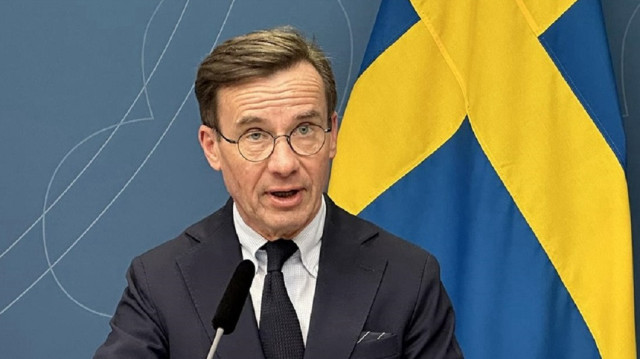
Ulf Kristersson expresses support for Polish proposal to form joint patrols
More needs to be done to protect the Baltic Sea in light of recent cable disruptions involving Russian and Chinese ships, said the Swedish prime minister, as reported by local media on Tuesday.
Calling the incidents dangerous, Ulf Kristersson warned, "If all (electricity) cables to the Baltic countries are cut in the middle of winter, we will have a serious crisis," according to broadcaster TV4.
Recalling his meeting with Polish counterpart Donald Tusk, who proposed joint sea patrols in the Baltic Sea, he expressed support.
Similar cooperation between NATO countries in the region is already taking place in airspace, Kristersson added.
Referring to the detention by Finnish authorities of the Eagle S ship, allegedly part of Russia's “shadow fleet,” over suspicions of cutting the power cable between Finland and Estonia on Christmas Day, he maintained Swedish authorities would have acted similarly.
- Baltic Sea incidents
The Baltic Sea has been the scene of several high-profile infrastructure incidents since the onset of Russia's war on Ukraine in February 2022, which heightened tensions in the region.
Last Thursday, authorities in Finland reported that a tanker had been detained in connection with the subsea cable damage incident that occurred on Christmas Day.
In November, two telecommunications cables linking Sweden and Denmark were severed. Authorities suspect the Chinese vessel Yi Peng 3, which sailed over the cables, while China denied Sweden's request to investigate the ship.
The Arelion submarine cable, which connects the Swedish island of Gotland to Lithuania, and the C-Lion 1 submarine communications cable that runs between Finland's capital Helsinki and Germany's Rostock city, were also damaged in mid-November near Sweden's territorial waters.
European officials have suggested that sabotage could be behind the recent disruptions, potentially linked to Russia's ongoing war on Ukraine. But the Kremlin has rejected the claims, calling them “absurd.”
The September 2022 explosions that ruptured the Nord Stream pipelines carrying Russian gas to Europe remain unresolved, underscoring the region's vulnerability to undersea attacks on key infrastructure.
Authorities across the Baltic region continue to investigate these incidents amid heightened vigilance as geopolitical tensions show no sign of abating.

